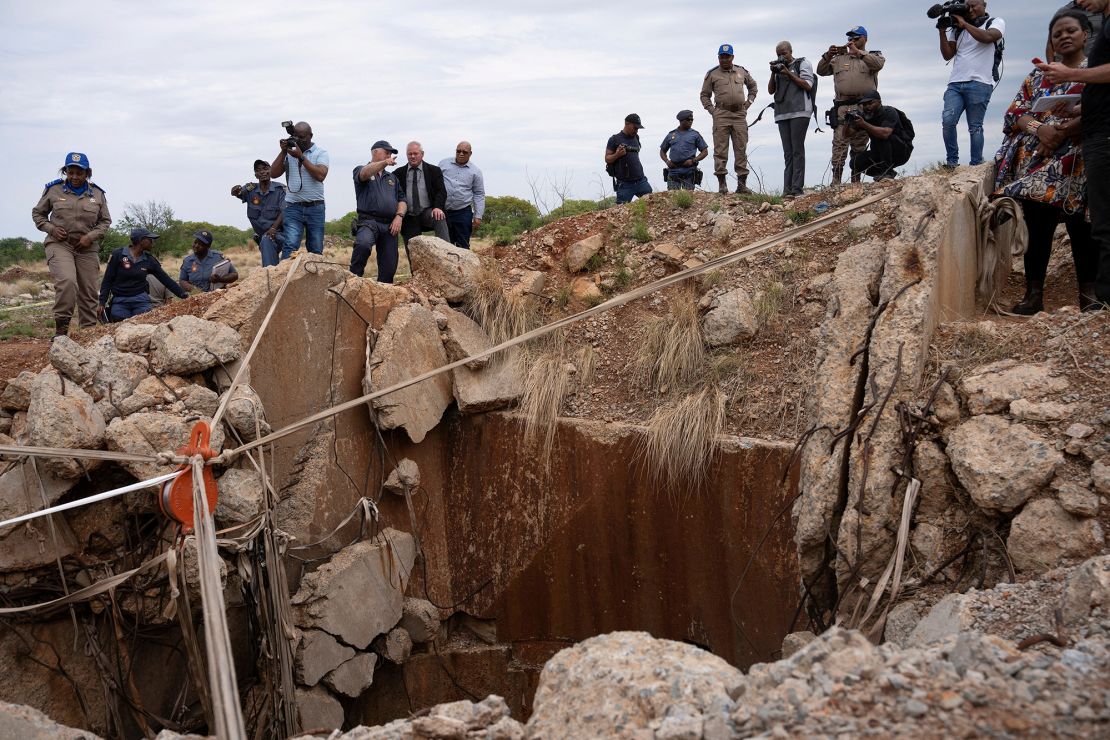Hundreds of workers trapped in South African gold mine as government cracks down on illegal mining

Conflicting reports have emerged regarding the number of miners trapped underground.
While police sources estimate the figure to be in the hundreds, accounts from three workers who managed to escape suggest that as many as 4,000 people may be stuck below ground.
The trapped miners are grappling with severe shortages of food and water, as authorities have blocked access points used to deliver essential supplies.
South African authorities argue that these measures are part of an intensified effort to curb illegal mining, which has long plagued the nation’s mining industry.
The government maintains that illegal mining drains revenues, hampers legitimate operations, and poses significant safety and environmental risks.
“These actions are necessary to combat illegal activities that are harming the mining sector and our economy,” said a government spokesperson, reiterating the administration’s commitment to clamping down on the practice.
South Africa, which was once the world’s top gold producer, currently ranks as Africa’s second-largest gold producer, having mined approximately 100 tonnes in 2021, representing 4.2% of global output.
The country’s storied history in gold production includes the Witwatersrand Basin, one of the world’s richest gold fields, and the South Deep mine, renowned for its use of cutting-edge extraction technology.
Amid growing tensions, Police Minister Senzo Mchunu announced a shift in the government’s approach, pledging efforts to safely rescue the miners.
“We will do everything in our power to bring these miners out alive,” Mchunu stated, responding to mounting criticism of the government’s handling of the crisis.
However, this response has done little to quell outrage sparked by earlier remarks from Minister in the Presidency Khumbudzo Ntshavheni, who declared that the government would “smoke [the zama zamas] out” – a term referring to illegal miners.
Civil society groups and humanitarian organizations have condemned the comments as “inhumane” and “irresponsible,” highlighting the dire socioeconomic factors driving many, including migrants, to risk their lives in abandoned mines.
Motsamai Mokotjo, a spokesperson for advocacy group SECTION 2, emphasized the desperation underlying illegal mining.
“While we do not condone illegal activities, we must recognize the harsh realities that push people to such extremes,” Mokotjo said, calling for a balanced approach that prioritizes both enforcement and human dignity.
About The Author
dailymailafric
I am an avid African news observer, and an active member of Daily Mail Africa.
I’m Passionate about staying informed on diverse topics across the continent,
I actively contribute to publishing on political, economic and cultural developments in Africa.



